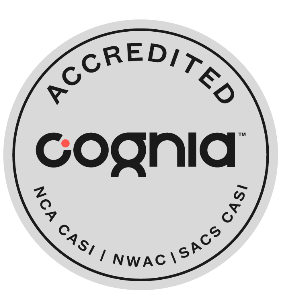It’s parent-teacher conference season in Utah, a ritual dating back at least 50 years. More than half-a-million of these meetings are planned statewide in the coming weeks, which amounts to a big investment of time and energy on behalf of schools and families.
So, how parents get the most out of this opportunity for facetime with faculty? What kinds of questions should they be asking? Are these meet-and-greets even still relevant or useful in today’s hyper-connected world where parents are signing up to receive daily electronic homework reminders, tardy notices, and report card updates?
“As a mother, if my child is sick and needs to stay home for the day, I can email the teacher for missed assignments or log in to an online portal to print out homework instructions. Schools have made it very easy for parents to communicate with teachers and keep  tabs on their children’s progress,” acknowledges Colleen Smith, a longtime principal and now Administrator of Canyons School District’s Responsive Services Department. “But there are still those questions or concerns that are best discussed in a face-to-face meeting with the teacher. If anything, I’d say parent-teacher conferences today are more productive and meaningful because parents are coming into them already front-loaded with information about their child’s progress. The limited amount of time they have with the teacher can then be spent zeroing in on one or two issues of importance.”
tabs on their children’s progress,” acknowledges Colleen Smith, a longtime principal and now Administrator of Canyons School District’s Responsive Services Department. “But there are still those questions or concerns that are best discussed in a face-to-face meeting with the teacher. If anything, I’d say parent-teacher conferences today are more productive and meaningful because parents are coming into them already front-loaded with information about their child’s progress. The limited amount of time they have with the teacher can then be spent zeroing in on one or two issues of importance.”
First, and foremost, Smith urges parents do their homework. “Take some time before the parent-teacher conference to review your child’s work and to ask your child about his or her experience at school, and then come prepared with a few questions,” she says. “Maybe you want to know what your child’s year-end math scores mean and how they were calculated. You might ask about how much homework to expect. Or, perhaps your child is struggling, and you’d like to know more about the school’s process for identifying and supporting students with special needs.”
 Teachers are prepared to fill the allotted time by reviewing a portfolio of a child’s work, grades, and test scores. But Smith says, “If you’ve got specific questions, they’re only too happy to spend the time answering them. In Canyons District, we take a team approach to education, so teachers will take what they learn from parents back to their teams to brainstorm new ways of supporting their students. We also involve students in our parent-teacher conferences, which helps to keep everyone on the same page and reinforce expectations.”
Teachers are prepared to fill the allotted time by reviewing a portfolio of a child’s work, grades, and test scores. But Smith says, “If you’ve got specific questions, they’re only too happy to spend the time answering them. In Canyons District, we take a team approach to education, so teachers will take what they learn from parents back to their teams to brainstorm new ways of supporting their students. We also involve students in our parent-teacher conferences, which helps to keep everyone on the same page and reinforce expectations.”
If parents have specific concerns that they’d prefer to discuss without their child present, schools also will accommodate that.
Smith advises parents to go into these meetings looking for: 1) something to celebrate, because there’s always something to celebrate; 2) an understanding of how the child is doing in class, academically and behaviorally; and 3) a set of tangible goals for improvement.
“Schools schedule parent-teacher conferences early in the year or semester so as to allow time for students to correct-course, adopt good study habits, and set personal achievement goals,” she says. “A goal can be as simple as agreeing to read for at least 20 minutes a day. But the more concrete the goal, the better.”
Teachers might even have a few questions themselves. “Teachers like knowing about their students’ hobbies and interests, because it helps them find new ways to connect with and inspire them,” Smith says. “Come prepared with questions, be curious and looking for something to celebrate, and a meaningful, enjoyable conversation will most likely unfold.”
Here are a few suggested questions to get the conversation started:
How are things going in the classroom?
- What are students expected to learn academically and socially?
- What does an average day in the classroom look like?
- Is my child doing his or her best?
- What are the goals for the year, and how will progress toward those goals be measured? (Don’t be afraid to ask the teacher to clarify jargon or explain what tests mean or how grades are calculated).
Looking ahead, what should our focus be?
- What are some concrete steps my child can take to improve?
- Does my child need extra help?
- What can we do to support our child at home?
- If we have questions or concerns, how would you prefer to communicatein-person or by email or phone?





